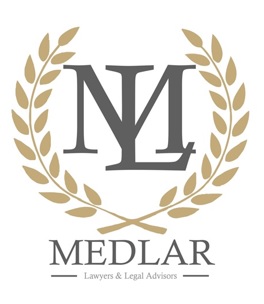posted 1 month ago
Author


No results available
ResetThe work of MEDLAR consists of providing legal support to clients in all stages of their operations in Tunisia, or investment projects, when they seek to have a comprehensive understanding of certain areas of Tunisian laws and regulations before investing. Our advisory support applies to all areas of business law, as well as to commercial litigation. The way I consider that we distinguish ourselves is linked to the values that the firm was established on; those values drive our business operation every single time we take on a new mission. For my practice, e.g. in commercial law or M&A, it is fundamental for me to understand the client’s business expectations, from undergoing a venture transaction or entering into a distribution contract. For example, what are the goals and business constraints I need to know about to deliver the most appropriate advice to meet their expectations? A high technicality of advisory support is also a criterion of excellence that we are keen to preserve as much as possible – to safeguard our clients’ business at all times.
In addition, continuous training to the most recent international practices (being myself registered with the Paris Bar) enables me to approach such transactions with a background based on benchmarks of knowledge concerning what is practised abroad for similar transactions. Meanwhile, I do not hesitate challenging my position by exchanging with the administrations each time the interpretation of a legislation is unclear, or when I know that internal positions of the administration involved in certain areas – such as competition, trade or exchange control – are important to share with the client. Finally, the availability of our team – and of us as partners of the firm – to take care of client demands in a timely manner is one of our most important values, even though it is a challenge we face every day.
My workflow is quite diversified in the commercial practice. It could take the form of legal support in relation to a data protection Q&A for a company operating in a sensitive sector, such as health. It could also entail assisting clients in their venture capital operations (acquisition of shares or assets and drafting of related documentation, such as SPA and shareholders’ agreements); merger control notifications under antitrust laws; issuing advice under foreign investments laws; or reviewing distribution arrangements and general corporate laws pertaining to companies’ governance. For example, I was asked by one of my clients, who is minority shareholder as well as a board member in a company operating in a strategic field, to examine the possibilities offered by the commercial companies’ code to comply with its diligence obligations as a board member while protecting his rights as a shareholder of the company. In this instance, I was required to draft the questions to the board directors on their policy and management in a situation wherein the chairman was involved in criminal procedure, as well as to examine the ways in which to implement judicial due diligence.
Although I believe that every single matter brings our attention to specific technicalities of commercial law our expertise (by enhancing our capacity to be creative), I must note that for the past 12 months, I have been working on an acquisition by way of subscription to capital increase for my clients investing in a startup operating in the FinTech sector. This is a very challenging transaction (it is still pending), as it brings together several areas of law, such as FinTech legislation, governance issues through the negotiation of a shareholders’ agreement, combined with specific issues deriving from the fact that in a startup, the most valuable asset is the know-how and technical expertise of its founders – in addition to all corporate safeguards related to a share capital increase.
I must also note that one of the most significant matters I advised on recently was putting together a shareholders’ agreement for a listed company in which all preferential rights and inalienability of shares clauses (which are standard clauses in private companies’ shareholders’ agreements) were constantly challenged by the rules applying to concert actions and regulatory obligations in terms of threshold-crossing declarations and APO.
Perhaps the integration of Tunisia in the COMESA market, and the willingness of the country to align its trade strategy within the region to the objectives of the COMESA (which are to suppress the trade barriers between COMESA countries and unify the law in numerous areas, such as merger control procedures). This has already begun to affect business in our region, as we tend to take into consideration the existence of a common market in certain areas of our practice. Moreover, the significant increase of digital commerce – and the creation of such marketplaces – has led us to be more creative in the interpretation of laws that have not yet been amended to reflect these changes. Therefore, we endeavour to gain practical insight by challenging our advice against international benchmarking, or by exposing our cases to the administration (where appropriate), as well as by obtaining specific rulings for our clients so that they can operate safely while utilising the most up-to-date technology.
Challenges that businesses commonly face when adapting to technological changes include gaining a comprehensive understanding of the compliance obligations that such changes will trigger, as well as acquiring human resources who are able to internally supervise technological adaptation. In order to assist such companies, we identify their obligations in terms of regulatory compliance and data protection issues (particularly if they handle sensitive information). We also advise clients in declarations or requesting authorisation with the agency in charge of data protection in our jurisdiction to ensure the business operates in full compliance with the law. We further bring to their attention the risks associated with cybercrime, and explain the safeguards provided by the legislation – while also helping them upgrade their internal documentation and, where applicable, we assist in the interface of their partners (whether public or private) to implement such change within their enterprise.
In my opinion, all sectors are at risk, more specifically enterprises that handle and store important volumes of data, such as banks and financial institutions, but also all establishments operating in the health sector. As legal advisers, we assist enterprises by instilling a comprehensive understanding of the safety procedures and cautions provided by the recently enacted Decree Law 2022-54, dated September 13th, 2022, relating to cybercrimes in IT and communication systems, so that they implement them internally. We may also assist them in reviewing, negotiating and upgrading their insurance coverage to include the relevant cyber insurance addressing the new risks. Finally, we can provide support by helping them implement alert procedures for when such attacks occur.
The focus on ESG issues by companies in Tunisia is still in its early stages, although we note an increase in general publications on the role of ESG and its contribution to the production of valuable, extra-financial information. For example, listed companies can rely on the Conseil des Marchés Financiers (the Financial Markets Council) and the Bourse des Valeurs Mobilières (Tunis stock exchange). ESG Reporting guidelines published around three years ago clarified that such guidelines are adapted for “all companies, whatever their size, shareholding, business activity or location”. Similarly, our firm can provide companies with a comprehensive analysis of the ESG framework in Tunisia to help them understand the criteria and the benefits of having their strategy aligned with ESG, particularly vis-à-vis potential investors, lenders or insurance companies – as well internally, through the setup of ESG Reporting under the supervision of one of their staff representatives.
We advise many of our overseas clients – with whom we engage in annual engagement letters – on updated laws and services relevant to their activity or investments. Our firm is also affiliated with regional networks, wherein reports on doing business in our jurisdiction are published regularly. For example, a 2024 report detailing some relevant changes is now available on the LEX Africa website.
Several areas of commercial law are expected to change in the short term to note the amendment of the Cahier des Charges, a set of rules governing car distribution in Tunisia, which is considered a strategic sector of the economy and was – to date – based on a licensing procedure. In addition, the foreign exchange regulations code, which was enacted in the late seventies (and amended several times for specific rules applying to foreign investments in Tunisia and investments made abroad by Tunisian operators), is expected to be overhauled. This will significantly impact the economy, making it more liberal while adapting it to ecosystems surrounding the creation and quick development of startups in such innovative fields as AI and sustainable energy. Meanwhile, the general upgrade of the investment climate initiated in 2016 has been reinforced by Decree Law N° 2022-68 in order to encourage projects that qualify as “public interest”, as well as to facilitate the development of Agri and ENER projects while extending existing industrial and/or innovative projects through a series of measures. These include the possibility to declassify Agri lands and support purchasing power parity for the achievement of such projects.
Yes – I think the next major piece of “commercial” law, given its impact on enterprises and the possibilities it can offer, is the use of AI. How? When? What are the means, the human resources (or not), the extent or the limitations as an instrument in an enterprise’s development? To date, none of these questions can be answered by the commercial laws that apply in our jurisdiction. I believe this should also be our next challenge as legal practitioners.
Main Guide
posted 2 years ago
Commercial or mercantile law relates to the interactions, rights and conduct of individuals or businesses engaged in trade and commerce…
No results available
Resetposted 2 months ago
Arbitration is a procedure wherein a dispute is submitted to one or more arbitrators who make a binding decision on the dispute. By choosing arbitration, parties opt for a private resolution rather than going to court…
posted 2 months ago
International trade law includes the appropriate rules for handling trade between countries, whereas customs is an authority or agency in a jurisdiction responsible for collecting tariffs and controlling the flow of goods…
posted 2 months ago
Business law refers to the body of law that applies to the rights, relations and conduct of persons and organisations engaged in commercial and business activities – also safeguarding the rights of shareholders…
No results available
ResetSign up for the latest advisory briefings and news within Global Advisory Experts’ community, as well as a whole host of features, editorial and conference updates direct to your email inbox.
Naturally you can unsubscribe at any time.
Global Advisory Experts is dedicated to providing exceptional advisory services to clients around the world. With a vast network of highly skilled and experienced advisers, we are committed to delivering innovative and tailored solutions to meet the diverse needs of our clients in various jurisdictions.